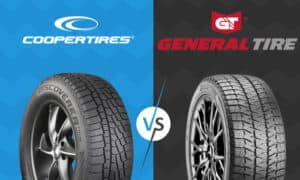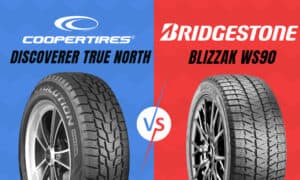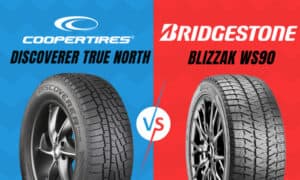Stockholm, Sweden’s capital city has had ambitions to ensure that it is a clean and healthy place to live since many years. Already in the 60:ies and 70:ies several parts of the city were turned into pedestrian zones. And in 1996 it implemented environmental zones putting emission requirements on lorries in the central parts of the city.
A congestion tax was introduced in 2007 permanently reducing the traffic by 20% from 2005 levels even though Stockholms’ population is annually growing by 2-3 %.
Description
Stockholm started their Greenhouse Gas project in 1997 and complemented it with the Clean Vehicles strategy. These programmes (and other efforts) under their overall climate programme have reduced emissions from mid 1990-levels of 5.4 tonnes CO2 eqv (C02, Methane and nitrious oxide) per capita to 3.0 tonnes 2013. The city aims reaching 2.3 tonnes CO2 eqv per capita by 2020 and to make Stockholm fossil fuel free by 2040. The city owned fleet is already 96% clean vehicles and the city is working on a stricter definition of ‘clean.’ Indeed a key driver of increasing the take up of clean vehicles and building the market is seen to come from public procurement and their processes.
Presently clean vehicles represent 12% (120,000) of all vehicles in Stockholm and 90% of the city’s filing stations offer fossil free fuel as ethanol or biogas. Incentives such as reduced parking fees and subsidies have been important to reach these goals.
No more diesel bus can be ordered or used and the public transport fleet uses ethanol, bio gas and city gas and hybrid electric (from hydro electricity). Trams and metro are also electric based. The ambition is to be fossil fuel free by 2025 for public transport.
Implementation
The implementation of the congestion charge in 2007 reduced traffic by some 20%. The charge was trialled between January and July 2006 and made permanent in August 2007, after popular vote especially by those living in the zone who saw a difference to the daily traffic. The charge affects Swedish-registered vehicles entering and leaving Stockholm’s inner city Monday-Friday between 06:30 – 18:29. The maximum charge is 60 SEK per day and there is no congestion charge on weekends or national holidays.
Vehicles driven with biogas, ethanol, electricity, synthetic gas, methane, methanol, natural gas or hydrogen were exempt until 2012. There will be no exemption from congestion charges for cars sold and registered after 1 January 2009 except for alternatively fuelled vehicles registered before 1 January 2009.
Carbon differentiated vehicle taxes were introduced for light-duty vehicles (1/10 2006 –). Basic tax at 360 SEK per year for all light duty vehicles. An additional tax is paid per gram CO2 exceeding 100 g/km. This per gram tax is 15 SEK for petrol driven vehicles. For diesel vehicles gram tax is 52.5 SEK/g CO2 and for vehicles using alternative fuels (in this case ethanol, E85, natural gas or biogas) the tax is 10 SEK/g CO2. Carbon differentiated vehicle taxes for heavy-duty vehicles vary between SEK 100 – 20,000. A new level of classification was introduced on 1 October 2009.
Funding
Clean vehicle premium (SEK 10,000 cash rebate) (1/4 2007-30/6 2009): To encourage individuals to purchase low-CO2 cars and alternatively fuelled cars, the Government introduced a clean vehicle rebate of 10,000 SEK in 2007. The rebate was available to private individuals who purchased a new clean vehicle and keep it for at least six months. Rebate payments were halted on 19 May 2008, because the original budget of 100 million SEK had been paid out. In July 2008, the Swedish government decided to provide additional 240 million SEK for clean vehicle rebates in 2008. Rebates were available until summer 2009.
The Clean Vehicle Premium was followed by a super-clean vehicle premium that supports vehicles emitting less than 50 g CO2 per km with a cash rebate of SEK 40.000. This has been supporting the development of electric vehicles where the market has doubled the last three consecutive years.
The City of Stockholm has also, together with the Swedish energy company Vattenfall AB, carried out a common procurement of electrical vehicles. The procurement brought together almost 300 municipalites and companies in a consortium that together bought some 900 electrical vehicles. By doing a common procurement buyers that feel unsecure of new technology could receive the support of participating in a greater group run by professional buyers.
Since 2006, all large refuelling stations have been obliged to provide at least one renewable fuel to consumers. The majority of fuel stations have chosen to supply ethanol E85 since this is by far the least expensive alternative and requires little investment in the infrastructure. The law was also combined with financial incentives to support biogas. The law started with filling stations providing more than 3000 cubic meters of fuel and by 2007 all filling stations providing more than 1000 cubic meters had to offer at least one alternative, renewable fuel. The figure below shows this illustrated.
Fig.The availability of Ethanol 85 mix refuelling stations in Sweden
Benefits
By the end of 2014, Stockholm had 160,000 registered clean vehicles (equivalent to 20% of all the vehicles registered in the area). It was estimated that this reduced some 150,000 tons CO2 /year and a further 150,000 tons per year is reduced with the use of E5 biofuel as a lowblend.
Potential for scaling up
The power of city procurement and the commitment of Stockholm can be replicated in other cities.



